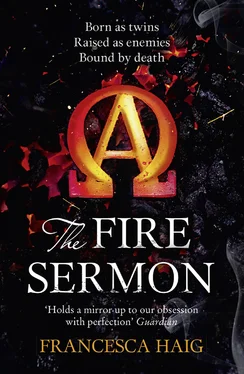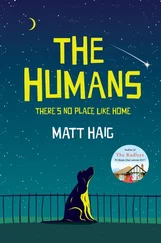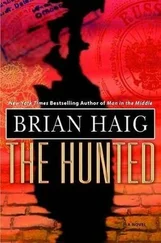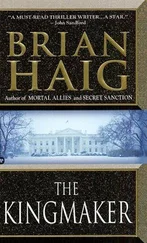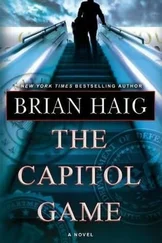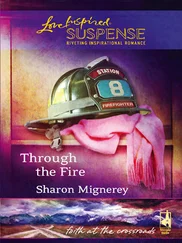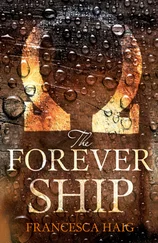I tried to say yes, managed a breathless grunt.
We rode on. From the endless jolting and the hanging upside down, I was sick twice – the second time on his leather boot, I noted with some satisfaction. Cursing, he stopped his mount and hauled me upright, looping a rope around my body so that my arms were bound at my sides. Sitting in front of him, the pressure in my head was eased as the blood flowed back down to my body. The rope cut into my arms but at least it held me steady, grasped firmly by the man at my back. We travelled that way for the rest of the day. At nightfall, when the dark was slipping over the horizon like a noose, we stopped briefly and dismounted to eat. Another of the men offered me bread but I could manage only a few sips from the water flask, the water warm and musty. Then I was again hoisted up, in front of a different man now, his black beard prickling the back of my neck. He pulled a sack over my head, but in the darkness it made little difference.
I sensed the city in the distance, long before the clang of hoofs beneath us indicated that we’d reached paved roads. Through the sacking covering my face, glints of light began to show. I could feel the presence of people all about me – more even than at Haven on market day. Thousands of them, I guessed. The road steepened as we rode on, slowly now, the hoofs noisy on cobbles. Then we halted, and I was passed, almost tossed, down to another man, who dragged me, stumbling, for several minutes, pausing often while doors were unlocked. Each time we moved on, I heard the doors being locked again behind us. Each scrape of a bolt sliding back was like another blow.
Finally, I was pushed down onto a soft surface. I heard a rasp of metal behind me, a knife sliding from a sheath. Before I had time to cry out, the rope around my body fell away, slit. Hands fumbled at my neck, and the sack was ripped from my head, the rough hessian grazing my nose. I was on a low bed, in a small room. A cell. There was no window. The man who’d untied me was already locking the metal door behind him.
Slumped on the bed, the taste of mud and vomit in my mouth, I finally allowed myself to cry. Partly for myself, and partly for my twin; for what he’d become.
The next morning, as usual, I woke from dreams of fire.
As the months passed, the moments after such dreams were the only times I was grateful to wake to the confines of the cell. The room’s greyness, the familiarity of its implacable walls, were the opposite of the vast and savage excess of the blast I dreamed of nightly.
There were no written tales or pictures of the blast. What was the point of writing it, or drawing it, when it was etched on every surface? Even now, more than four hundred years after it had destroyed everything, it was still visible in every tumbled cliff, scorched plain, and ash-clogged river. Every face. It had become the only story the earth could tell, so who else would record it? A history written in ashes, in bones. Before the blast, they say there’d been sermons about fire, about the end of the world. The fire itself gave the last sermon; after that there were no more.
Most who survived were deafened and blinded. Many others found themselves alone – if they told their stories, it was only to the wind. And even if they had companions, no survivor could ever properly describe the moment it happened: the new colour of the sky, the roar of sound that ended everything. Struggling to describe it, the survivors would have found themselves, like me, stranded in that space where words ran out and sound began.
The blast shattered time. In an instant, it cleaved time irrevocably into Before and After. Now, hundreds of years later, in the After, no survivors remained, no testimonies. Only seers like me could glimpse it, momentarily, in the instant before waking, or when it ambushed us in the half-second of a blink: the flash, the horizon burning up like paper.
The only tales of the blast were sung by the bards. When I was a child, the bard who passed through the village each autumn sang of other nations, across the sea, sending the flame down from the sky, and of the radiation and the Long Winter that had followed. I must have been eight or nine when, at Haven market, Zach and I heard an older bard with frost-grey hair singing the same tune but with different words. The chorus about the Long Winter was the same, but she made no mention of other nations. Each verse she sang just described the fire, and how it had consumed everything.
When I’d pulled our father’s hand and asked him, he’d shrugged. There were lots of versions of the song, he said. What difference did it make? If there’d once been other lands, across the sea, there were no longer, as far as any sailor had lived to tell. The occasional rumours of Elsewhere, countries over the sea, were only rumours – no more to be believed than the rumours about an island where Omegas lived free of Alpha oppression. To be overheard speculating about such things was to invite public flogging, or to end up in the stocks, like the Omega we’d once seen outside Haven, pinned under the scathing sun until his tongue was a scaled blue lizard protruding from his mouth, while two bored Council soldiers kept watch, kicking him from time to time to ensure he was still alive.
Don’t ask questions, our father said; not about the Before, not about Elsewhere, not about the island. People in the Before asked too many questions, probed too far, and look what that got them. This is the world now, or all we’ll ever know of it: bounded by the sea to the north, west, and south; the deadlands to the east. And it made no difference where the blast came from. All that mattered was that it came. It was all so long ago, as unknowable as the Before that it had destroyed, and from which only rumours and ruins remained.
*
In my first months in the cell, I was granted the occasional gift of sky. Every few weeks, in the company of other imprisoned Omegas, I was escorted on to the ramparts for some exercise and a few moments of fresh air. We were taken in groups of three, with at least as many guards. They watched us carefully, keeping us not only apart but also well away from the crenellations that overlooked the city below. The first outing, I’d learned not to try to approach the other prisoners, let alone to speak. As the guards escorted us up from the cells, one of them had grumbled about the slow pace of the pale-haired prisoner, hopping on one leg. ‘I’d be quicker if you hadn’t taken away my cane,’ she’d pointed out. They didn’t respond, and she’d rolled her eyes at me. It wasn’t even a smile, but it was the first hint of warmth I’d seen since entering the Keeping Rooms. When we reached the ramparts, I’d tried to sidle close enough to her to attempt a whisper. I was still ten feet from her when the guards tackled me against the wall so hard that my shoulder-blades were bruised against the stone. As they hustled me back down to the cell one of them spat at me. ‘Don’t talk to the others,’ he said. ‘Don’t even look at them, do you hear?’ With my arms held behind my back, I couldn’t wipe his spittle from my cheek. Its warmth was a foul intimacy. I never saw the woman again.
A month or more later was my third outing to the ramparts, and the last for any of us. I was standing by the door, letting my eyes accustom to the glint of sun on polished stone. Two guards stood to my right, chatting quietly. Twenty feet to my left, another guard leaned against the wall, watching a male Omega. He’d been in the Keeping Rooms longer than me, I guessed. His skin, which must once have been dark, was now a dirty grey. More telling were the twitchy motions of his hands, and the way he kept moving his lips, as if they didn’t fit over his gums. The whole time we’d been up there, he had walked backwards and forth on the same small patch of stones, dragging his twisted right leg. Despite the interdiction on speaking to one another, I could periodically hear his muttered counting: Two hundred and forty-seven. Two hundred and forty-eight.
Читать дальше
